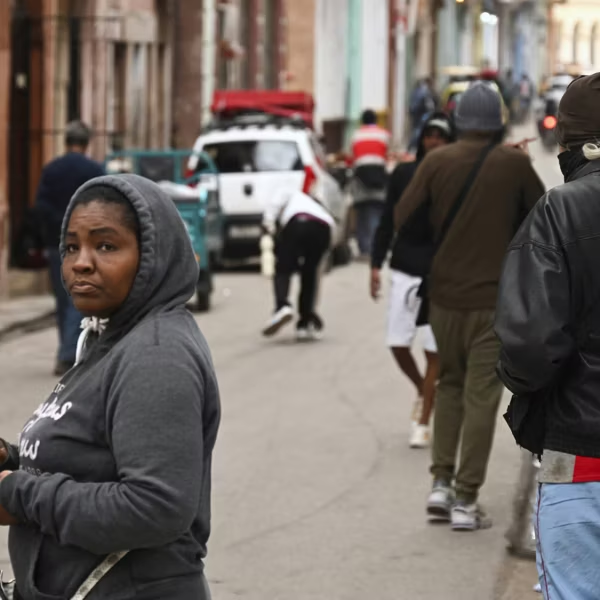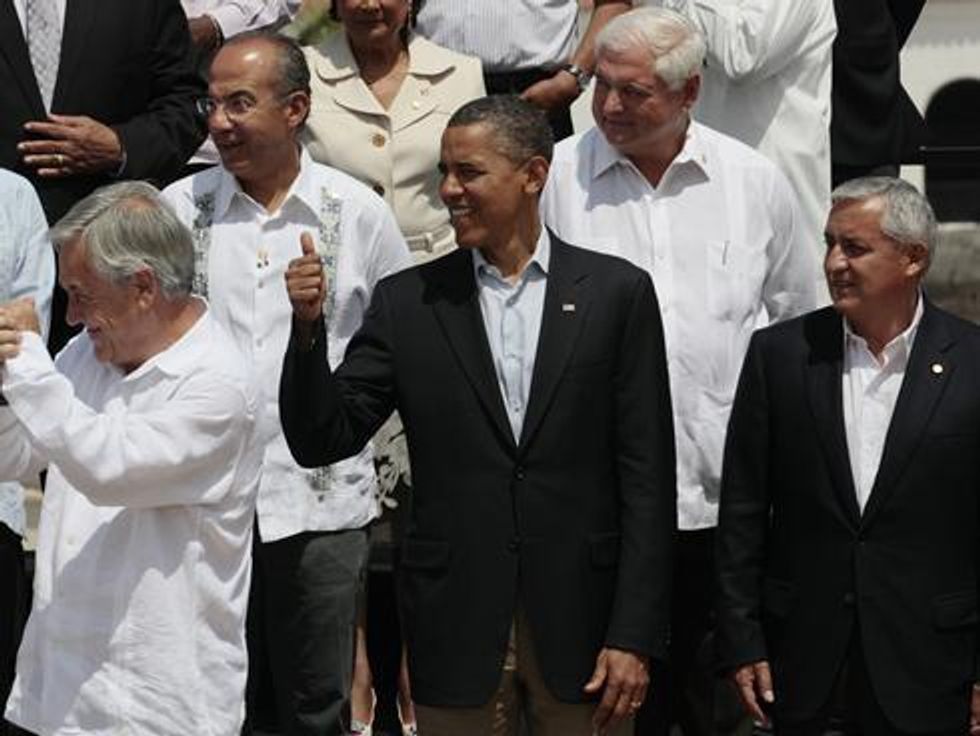With the media happily fixated on the sex scandal swirling around the U.S. Secret Service, the Sixth Summit of the Americas held in Cartagena, Colombia over the weekend was left to collapse with little notice. The inability of the some 30 heads of American states to even issue a final declaration on Sunday derived primarily from the growing regional frustration with U.S. Cuban policy.
It has now been over half a century since Fidel Castro led a successful armed, popular revolt against U.S.-backed dictator Fulgencio Batista. Washington, though, is long in forgetting those that openly challenge and defy U.S. power (witness U.S. policy towards Iran). Thus, the collective punishment of the Cuban people has long since been cemented as an unquestionable tenet of U.S. foreign policy--the longest and most foolhardy embargo in history remains.
However, with the rise of center-left governments through the Americas, coupled with the weakening of U.S. regional influence attributable to its imperial overstretch in the Middle East, a growing push-back against U.S. Cuban policy has finally begun to take hold. In 2009, for example, the Organization of American States (OAS) voted in defiance of the U.S. to lift its nearly 50-year membership ban on Cuba. (Cuba still refuses to seek entry in the OAS, claiming that the organization is a tool of U.S. imperialism.)
Significantly, this growing impatience with U.S. Cuban policy has not been limited to the continent's ascendant coalition of center-left governments. In fact, right-wing Colombian President Juan Manuel Santos, a stanch ally of the U.S. and avid fighter of the Colombian Marxist rebel group F.A.R.C., publicly expressed his frustration with the obstinate U.S. posture towards Cuba just prior to this weekend's summit. As Santos warned:
It would be just as unthinkable to hold another hemispheric meeting with a prostrate Haiti, as it would be with Cuba absent...isolation, embargo and indifference have shown their ineffectiveness. It's an anachronism that keeps us anchored to a Cold War era that's been overcome for decades now.
Indeed, for Ecuadorian President Rafael Correa boycotted the weekend's summit, directly citing U.S. policy towards Cuba. The foreign ministers of Venezuela, Argentina and Uruguay, moreover, stated prior to the summit that their presidents would refrain from signing any summit declaration unless the US removed its veto of future Cuban participation.
Facing such a diplomatic backlash against his government's failed Cuban policy, President Obama--quite remarkably, we might add--chose to defend the growing isolation of the U.S. by calling for all to move beyond any Cold War era mindset. As Obama declared:
Sometimes I feel as if in some of these discussions, or at least the press reports, we're caught in a time warp, going back to the 1950s and gunboat diplomacy and Yankees and the Cold War, and this and that and the other. That's not the world we live in today.
This, though, is in fact the very world in which U.S. policy remains suspended. And if the past weeks have demonstrated anything in this regard, it is a world in which the U.S. shall long remain.
After all, in mid-March, the U.S. State Department rejected applications from two senior Cuban diplomats to travel to New York City to take part in a panel discussion at the Left Forum. The State Department cited Cuba's refusal to permit American diplomats freedom of travel outside Havana as reason for the travel ban. But unlike the U.S., Cuba has not once tried to overthrow the U.S. government. But such is life in the U.S. Cold War time warp.
And then, of course, this past week saw the U.S. sports world rise to express its collective outrage at the supposedly incendiary comments made by new Miami Marlins manager Ozzie Guillen. Guillen's crime: a public expression of admiration for Fidel Castro. For such a grave transgression Guillen was forced to issue an immediate apology, and denounce Castro as a universally hated tyrant. Nonetheless, Guillen was still slapped with a five game suspension for riffling the feathers of the rabidly anti-Castro Miami community. Free speech, Guillen no doubt learned, has its limits.
The Cuban Revolution, despite any of its faults, should not be something to instinctively vilified. Since the 1959 revolution wrestled the island free from the jackboot of U.S. imperialism, life expectancy in Cuba has gone from just under 60 years to just under 80 years. And as governments at all levels in the U.S. take a hatchet to social spending, Cubans continue to enjoy free education and health care at every level.
So, as the states inhabiting the Americas look toward forging a future free from Cold War antagonisms, the U.S. remains fixated on the imagined red menace looming 90 miles off its coast. No war waged by the United States, it appears, is easily brought to a close.




